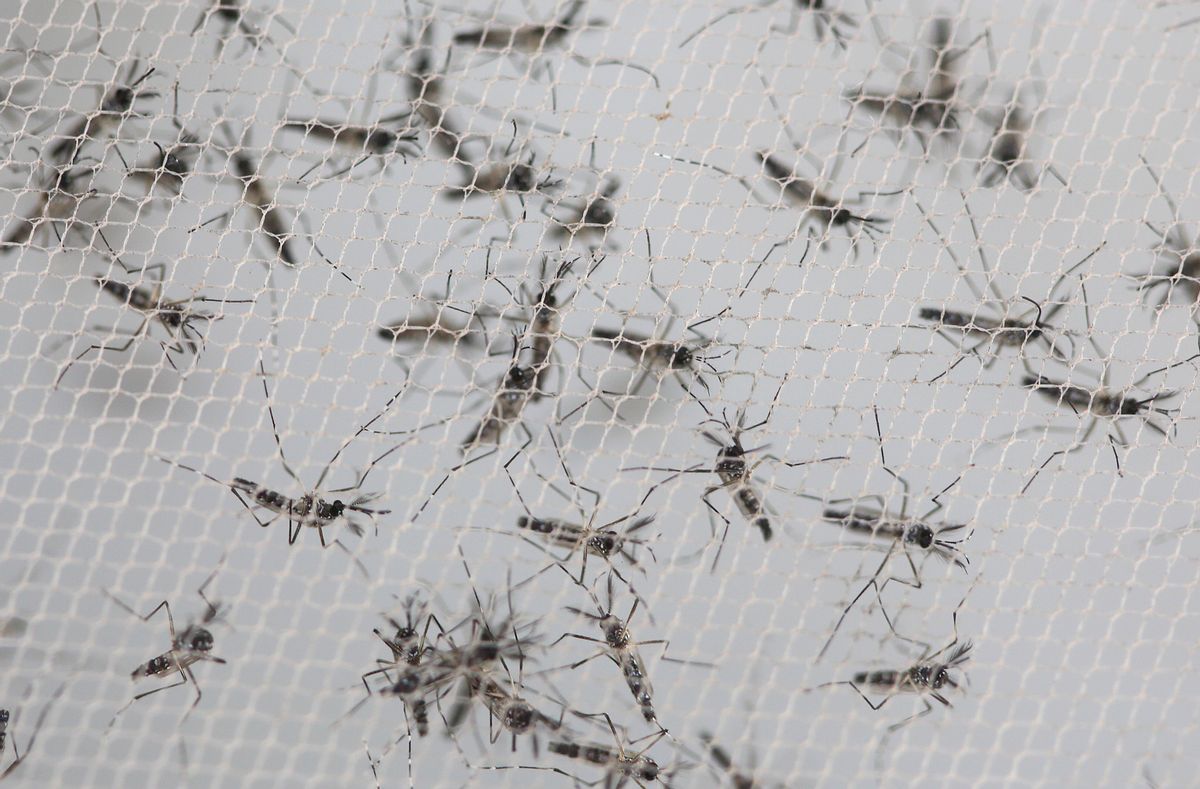 Cases of microcephaly in newborn children in Brazil have recently been linked to an obscure mosquito–borne virus known as Zika. The condition, in which the infants are born with abnormally small heads, often results in brain damage. The World Health Organization, concerned about the spread of the virus, has declared a public health emergency and has warned pregnant women to consider avoiding Brazil. WHO has even warned Brazilian women to consider put off any planned pregnancies until the virus has been brought under control.
Cases of microcephaly in newborn children in Brazil have recently been linked to an obscure mosquito–borne virus known as Zika. The condition, in which the infants are born with abnormally small heads, often results in brain damage. The World Health Organization, concerned about the spread of the virus, has declared a public health emergency and has warned pregnant women to consider avoiding Brazil. WHO has even warned Brazilian women to consider put off any planned pregnancies until the virus has been brought under control.
Naturally, the news media has taken this scenario and run with it. Front-page stories about brain-damaged babies can certainly sell papers. But how afraid should we be of the Zika virus? Short answer: we need to take a step back, take a deep breath and calm down.
Make no mistake, mosquito-borne illnesses are a deadly problem in the world. Malaria sickens hundreds of millions of people every year, and in 2015 alone, almost half a million died from it. Dengue fever affects up to 100 million people every year, with up to a million resulting deaths.
Compare this with the Zika virus. Prior to 2013, only a small number of cases were even documented. At this point, little is known about the mortality risk from Zika, although there have been no reported deaths so far and 80% of people infected with the virus never even display any symptoms. For those who do, the symptoms seem to be relatively mild: fever, joint pain, a rash, and bloodshot eyes. Of course, the danger to unborn babies changes the equation, but it should be noted that the U.S. Centers for Disease Control has not yet firmly established that the Zika virus is definitively the cause of the microcephaly cases. The link is so far only indirect, i.e. the increase in Zika infection has coincided with the increase in microcephaly.
Zika panic is certainly unwarranted at this time, especially in the U.S. where mosquito-borne diseases are rare compared with much of the rest of the world. This is due in part to the more temperate weather North America enjoys, as well as the amount of time most people spend indoors, in air-conditioned buildings and houses with window screens. In truth, even in areas badly affected by the virus, like Brazil, the number of microcephaly cases, about 4000, is only a tenth of a percent of all births in the country. And of those 4000 cases, at least some—if not all—were caused by factors unrelated to Zika. In the U.S., meanwhile, which is relatively unaffected by Zika so far, microcephaly occurs at the same one tenth of one percent rate as in Brazil. Zika or not, the condition is rare.
Nevertheless, it would be prudent, until more information is out there, to take precautions. Pregnant women should probably avoid traveling in countries where the virus is prevalent. If you are traveling in those areas, put off getting pregnant. Also, it might be prudent not to have procreative sex with someone infected with Zika as the virus may be able to be transmitted sexually. Whether abroad or in the U.S., when outdoors where mosquitos are likely to be, wear insect repellant, preferably containing DEET (no, DEET does not cause neurological damage) or Picardin. Wear loose, long-sleeve clothing. Make sure your yard has no standing water where mosquitos typically breed. Fix the screens in your windows. Basically, this is all the same advice for avoiding mosquito bites, period. Maybe with a little more urgency.
Vaccines against Zika are already in development. For now, don’t let the media’s need to tell a story induce apocalyptic visions and nightmares. Inform yourself and take the reasonable safety measures. In other words, keep calm and carry on.



Shares